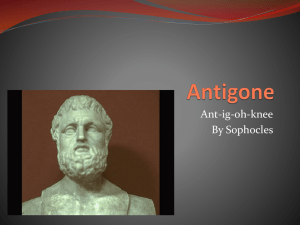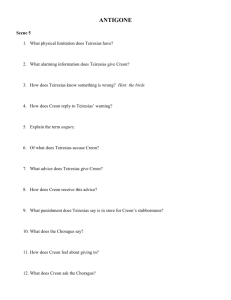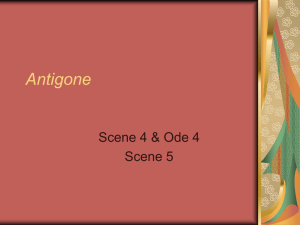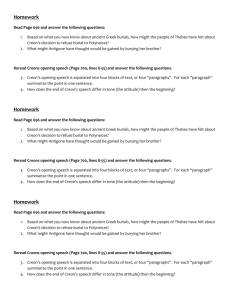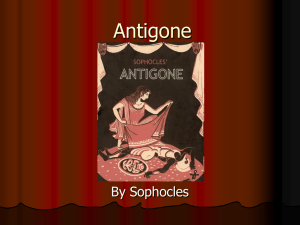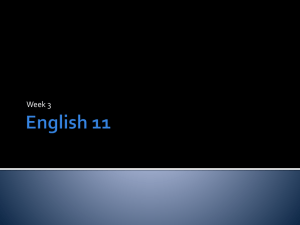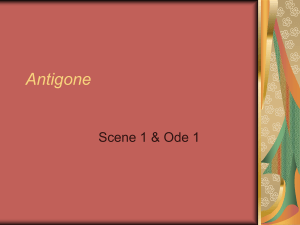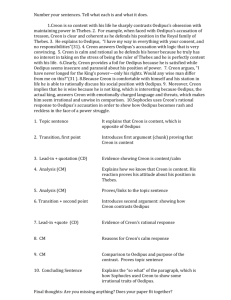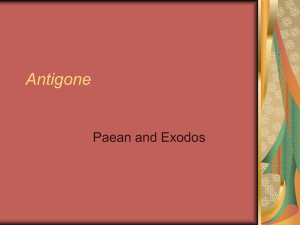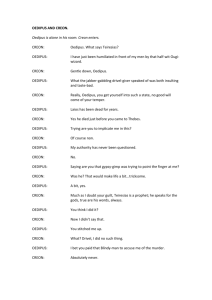Hubris, or pride, is a crucial element in Sophocles` play, “Antigone
advertisement
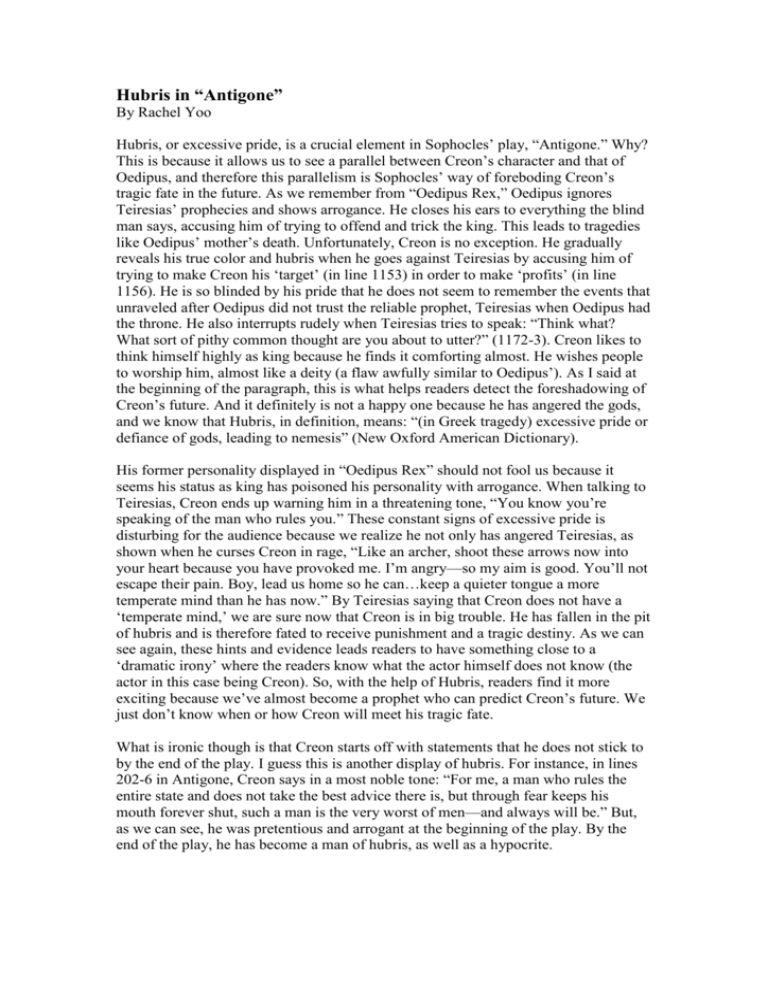
Hubris in “Antigone” By Rachel Yoo Hubris, or excessive pride, is a crucial element in Sophocles’ play, “Antigone.” Why? This is because it allows us to see a parallel between Creon’s character and that of Oedipus, and therefore this parallelism is Sophocles’ way of foreboding Creon’s tragic fate in the future. As we remember from “Oedipus Rex,” Oedipus ignores Teiresias’ prophecies and shows arrogance. He closes his ears to everything the blind man says, accusing him of trying to offend and trick the king. This leads to tragedies like Oedipus’ mother’s death. Unfortunately, Creon is no exception. He gradually reveals his true color and hubris when he goes against Teiresias by accusing him of trying to make Creon his ‘target’ (in line 1153) in order to make ‘profits’ (in line 1156). He is so blinded by his pride that he does not seem to remember the events that unraveled after Oedipus did not trust the reliable prophet, Teiresias when Oedipus had the throne. He also interrupts rudely when Teiresias tries to speak: “Think what? What sort of pithy common thought are you about to utter?” (1172-3). Creon likes to think himself highly as king because he finds it comforting almost. He wishes people to worship him, almost like a deity (a flaw awfully similar to Oedipus’). As I said at the beginning of the paragraph, this is what helps readers detect the foreshadowing of Creon’s future. And it definitely is not a happy one because he has angered the gods, and we know that Hubris, in definition, means: “(in Greek tragedy) excessive pride or defiance of gods, leading to nemesis” (New Oxford American Dictionary). His former personality displayed in “Oedipus Rex” should not fool us because it seems his status as king has poisoned his personality with arrogance. When talking to Teiresias, Creon ends up warning him in a threatening tone, “You know you’re speaking of the man who rules you.” These constant signs of excessive pride is disturbing for the audience because we realize he not only has angered Teiresias, as shown when he curses Creon in rage, “Like an archer, shoot these arrows now into your heart because you have provoked me. I’m angry—so my aim is good. You’ll not escape their pain. Boy, lead us home so he can…keep a quieter tongue a more temperate mind than he has now.” By Teiresias saying that Creon does not have a ‘temperate mind,’ we are sure now that Creon is in big trouble. He has fallen in the pit of hubris and is therefore fated to receive punishment and a tragic destiny. As we can see again, these hints and evidence leads readers to have something close to a ‘dramatic irony’ where the readers know what the actor himself does not know (the actor in this case being Creon). So, with the help of Hubris, readers find it more exciting because we’ve almost become a prophet who can predict Creon’s future. We just don’t know when or how Creon will meet his tragic fate. What is ironic though is that Creon starts off with statements that he does not stick to by the end of the play. I guess this is another display of hubris. For instance, in lines 202-6 in Antigone, Creon says in a most noble tone: “For me, a man who rules the entire state and does not take the best advice there is, but through fear keeps his mouth forever shut, such a man is the very worst of men—and always will be.” But, as we can see, he was pretentious and arrogant at the beginning of the play. By the end of the play, he has become a man of hubris, as well as a hypocrite.

